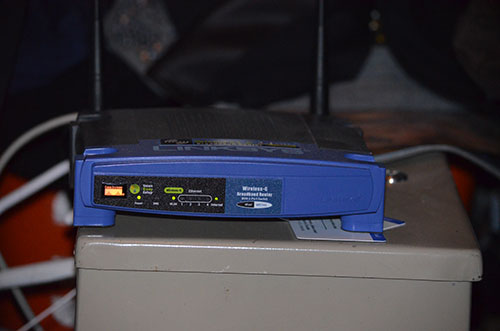By Chelsey Schweitzer
Staff Writer
Constant exposure to WiFi may be negatively impacting student health.
Internet access is a main concern for the majority of students, especially with the growing number of classes turning to online resources. However, the WiFi that allows students to have access to the materials they need can also lead to numerous health problems.
WiFi uses electromagnetic radiation in order to send signals through the walls of a building and to the computer that is hooked up to the wireless network. This is leading to small doses of EMF radiation exposure. The closer you are to a wireless modem and the more time you spend near a wireless network, the more radiation you are taking in. Many students even have their own WiFi modems within their apartments or homes, exposing them to this electromagnetic radiation at a much closer range. In addition, if this modem is not turned off at night then you are being exposed to small doses of radiation 24/7.
The electromagnetic radiation that is released by WiFi modems has prompted some scientists to believe that they cause adverse health effects. Dr. Henry Lai published a study in which he argues that radio frequency radiation, which is released by wireless internet modems as well as cell phones and other forms of wireless technology, causes health effects. These include cancerous tumors and genetic effects, including damage to DNA. Other noted symptoms that are argued to result from wireless modem radiation over time are sleep disturbances and an increased frequency of migraines.
While the radiation received from wireless modems is at a much smaller dose and not as harmful as the radiation received from cell phones, I still believe that students should try to reduce their exposure time where they can. For students that have their own personal wireless modems, these should be unplugged when not in use to reduce your daily amount of radiation exposure. In addition, students should try to spend some time outdoors where the radiation from wireless networks is less potent. I also think that the campus might want to consider shutting the WiFi off in the student housing areas for a few hours each night when internet activity is consistently the lowest, allowing students to sleep without the presence of harmful electromagnetic radiation.


